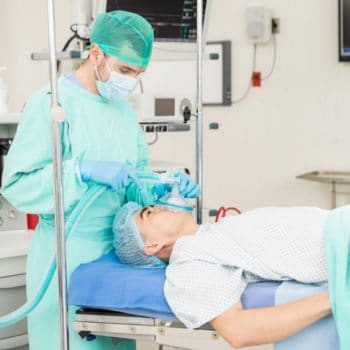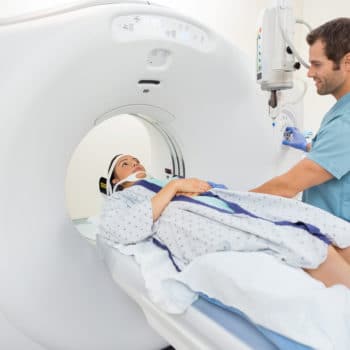Why We Love It
-
$192,120Potential Avg. Salary*
-
Growing DemandJob Outlook
* Salary & growth data is based on the recent Bureau of Labor and Statistics data published at https://www.bls.gov/oes/current/oes291062.htm for 29-1062 Family and general practitioners 11/2021. Based on national data, not school-specific information. Conditions in your area may vary.
If your career goal is to become a practicing medical professional—doctor, dentist, pharmacist, surgeon, veterinarian, etc.—then a bachelor of science may be the perfect starting point for your education.
In a biomedical sciences program, you’ll enjoy an intensive study of human and animal biology, but unlike in a biology program, the biomedical sciences are specifically focused on how biology relates to medical care.
What is a Degree in Biomedical Sciences?
Before students can enroll in medical, dental, pharmaceutical, or veterinary school, they must complete a science-focused undergraduate degree program. Many pre-med students pursue a general education in biology, but the field of biology is broad and covers both animal and plant life.
Instead, students may be better prepared for the MCAT and graduate school by enrolling in a biomedical sciences program—a program that offers an education in the sciences as each relates directly to human/animal medical care.
In a biomedical sciences program, you’ll take intensive coursework in biology, chemistry, anatomy, physiology, and genetics, each focused on how the subject applied to human and animal medical care. You’ll grow to understand the systems that work together to sustain life, and you’ll study different methods of disease treatment, diagnosis, and prevention.
While there are career opportunities for graduates with only bachelor’s degrees, this major is usually selected by students who plan to enroll in graduate school.
Recommended Schools
What Courses Would I Take For a Major in Biomedical Sciences?
- Living Systems
- Cell Biology
- Microbiology
- Neuroanatomy
- Human Gross Anatomy
- Microscopic Anatomy
- Animal Gross Anatomy
- Biochemistry
What Jobs Can You Get with a Degree in Biomedical Sciences?
The field of healthcare is expected to grow much faster than the national average in the coming decades. The reason for this growth is two-fold. First, the aging Baby Boomer generation is very large and expected to increase demand for healthcare—and therefore healthcare professionals—as they reach retirement age.
Second, health insurance and healthcare coverage have become more accessible in recent years, which is another factor that is increasing the demand for healthcare and providers.
How Long does it take?
A bachelors in Biomedical Sciences will have a typical length of 4 years in a full time schedule. That said, there are many ways to speed up the timeframe by either taking more units via online coursework, community college, or taking free classes at OnlineDegree.com that could transfer to universities in the US.
Recommended Schools
Best Jobs for Biomedical Sciences Degrees
With a bachelor’s degree in biomedical sciences, graduates may be able to find work in assistant roles to different types of human and animal care providers and researchers.
However, students who go on to earn graduate and professional degrees can find careers in a wide variety of healthcare roles. Students with graduate degrees can work as doctors, surgeons, dentists, veterinarians, optometrists, pharmacists, and many more.
How to save time and money
Our mission is to help you to avoid paying full price for college. We want your Biomedical Sciences degree to be affordable and accessible. Here’s how you could save:
Create Your Free SmartPlan

There are many ways to make college affordable and accessible.
That’s why we created a helpful tool called SmartPlan.
It’s free, and helps you find potential ways to save and tons of information about each school you’re considering
Think of it as your “college blueprint”, to help you instantly craft a path to your degree:
- Which Colleges Match Your Needs
- Ways You Could Save Time & Money
- Free Courses You Could Take for Credit
- Valuable Data and Insights on Each College
- Detailed Steps You Should Take!
See what’s possible for you and generate a free plan within just a few minutes
Create My SmartPlanYou Might also be Interested in
Many visitors who look for a degree in Biomedical Sciences are also interested in the following degrees.











